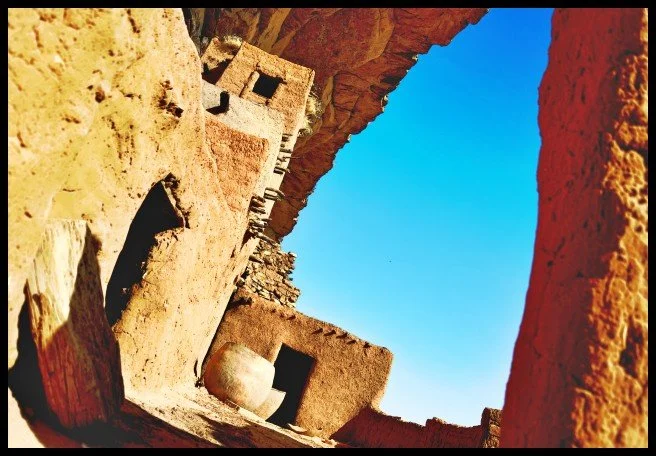
Mali isn’t cheap. As one might expect, there are two economies: local and tourist. Accommodation? Overpriced. Food? Overpriced. Cultural tour? Overpriced. Everything related to tourists? Overpriced. If you’re an affluent French tourist with limited world travel experience on a package vacation, you might disagree. Many seemed to be enjoying their time.
Our first outing brought us thirty kilometers downstream from Bamako on the Niger River, a quirky side trip that proved to be fascinating. When our guide (Ibrahim) described it, I had no idea what we were in for. His accent was difficult to decipher. We were going on an afternoon boat trip to see some people engage in some activity somewhere. Sign me up…
On the way back to Segou, we spent time at a couple of Bozo fishing villages. And no, these are not carnival enclaves filled with fishing clowns (although the temptation to utter things like “Hey, look at those Bozos” or “What's that Bozo doing” was overwhelming). The first was a market village where folks gather once a week to sell their catch across the river in Segou. The second was an actual fishing village where we saw nets being hand-made and piles of fish traps ready to be deployed along the coast. Our guide showed us his modest home and introduced us to a nearby family that graciously offered us tea.
While strolling through the village, we soon attracted an entourage of small children, some of which clasped our hands and shadowed us for the duration...
Djenne is dominated by the central square containing the Great Mosque of Djenne, composed almost entirely of mud bricks and wooden spars. The mosque is the largest adobe building in the world. The current structure dates from 1907. It’s a wonder to behold, although “supremely elegant” might be pushing it. When I hear “supremely elegant,” I think of a high-priced hooker, not a sacred UNESCO site. “Elegance” comes at a price. Mud brick isn’t known for longevity, so every year after the rains, the mosque must be repaired. People from the surrounding area come together to assist with improvements. The wooden spars you see jutting from the structure not only provide support but also aid in reconstruction efforts, serving as a scaffolding. Mosque repair has taken on a pilgrimage quality…
Leslie and I sat back, drank tea, and watched two men craft ours. All you need is goat leather and a verse from the Koran, at least in that village. Sori told me much care goes into choosing the verse… unless you’re a tourist. Then, I guess, any old verse will do… or a blank piece of paper, a hex, a knock-knock joke, a recipe for dolma, or a naughty poem for that matter. What was in ours? Who the hells knows? One mustn't forget the Juju Golden Rule: Juju onto others as wish them to juju onto you.
The paper is folded and encased in leather (rectangular), covered with a curing concoction, and fastened to the end of a strap, then tied to a belt or the like and worn underneath the clothes near the waist. We “consecrated” our juju by joining hands while the craftsman uttered phrases in Fulani.…
When we disembarked in Mopti, neither of us was in the mood for the fusillade of touts (Taxi? Pinnace? Dogon? Hotel?) that began their assault the moment our feet touched the ground. I felt like tearing out a gob of hair and screaming. Leslie, a mild-mannered female, appeared as if she might start swinging. We managed to negotiate the onslaught and make our way to a hotel with the help of a local guide… that gave us his card… and offered to guide us to Dogon. (Days later, when I ran into this gentleman again, he demanded I return his card.) After getting a room, I loitered in the lobby area talking with another Malian gentleman… that gave me his card… and offered to guide me to Dogon….
We landed in Yaba-Talu on Christmas Eve. We’d gained elevation and were skirting the edge of the escarpment overlooking the vast plain extending into Burkina Faso. I went for a stroll to the cliff’s edge to have a look. I’d hoped there might be a place to camp nearby, but it turned out to be less than ideal. On the way, I walked through a burial site. I only found this out later when Leslie walked into the area and was enlightened by young girls pantomiming the “cutthroat” motion to indicate the site's significance. That's what I get for exploring solo. Dummy.
The next morning, the small village was awash with activity. It was Christmas day…
Now all we had to do was get the hell out of Mali. Easier said than done, grasshopper. We considered exploring other parts of West Africa but faced roadblocks. In Guinea, political and ethnic violence marred elections, resulting in closed borders. By the time we were ready to leave, it was possible to fly in, but we weren’t sure if the land borders would be passable, which might preclude us from crossing into adjacent countries. With Guinea as an impediment to onward travel, Senegal, Sierra Leone, and Liberia were out. Fiddlesticks.
We'd just come from Mauritania. Niger had Al Qaeda issues and isn’t such an easy place to breeze around in. How about Cote d’Ivoire, you say?…







11th century - Empire of Mali becomes dominant force in the upper Niger basin, its period of greatness beginning under King Sundiata in 1235 and peaking under Mansa Musa who ruled between 1312 and 1337 and extended empire to the Atlantic.
14th-15th centuries - Decline of the Empire of Mali, which loses dominance of the gold trade to the Songhai Empire, which makes its base in Timbuktu - historically important as a focal point of Islamic culture and a trading post on the trans-Saharan caravan route.
Late 16th century - Moroccans defeat the Songhai, make Timbuktu their capital and rule until their decline in the 18th century.
19th century - French colonial advance, and Islamic religious wars which lead to creation of theocratic states….